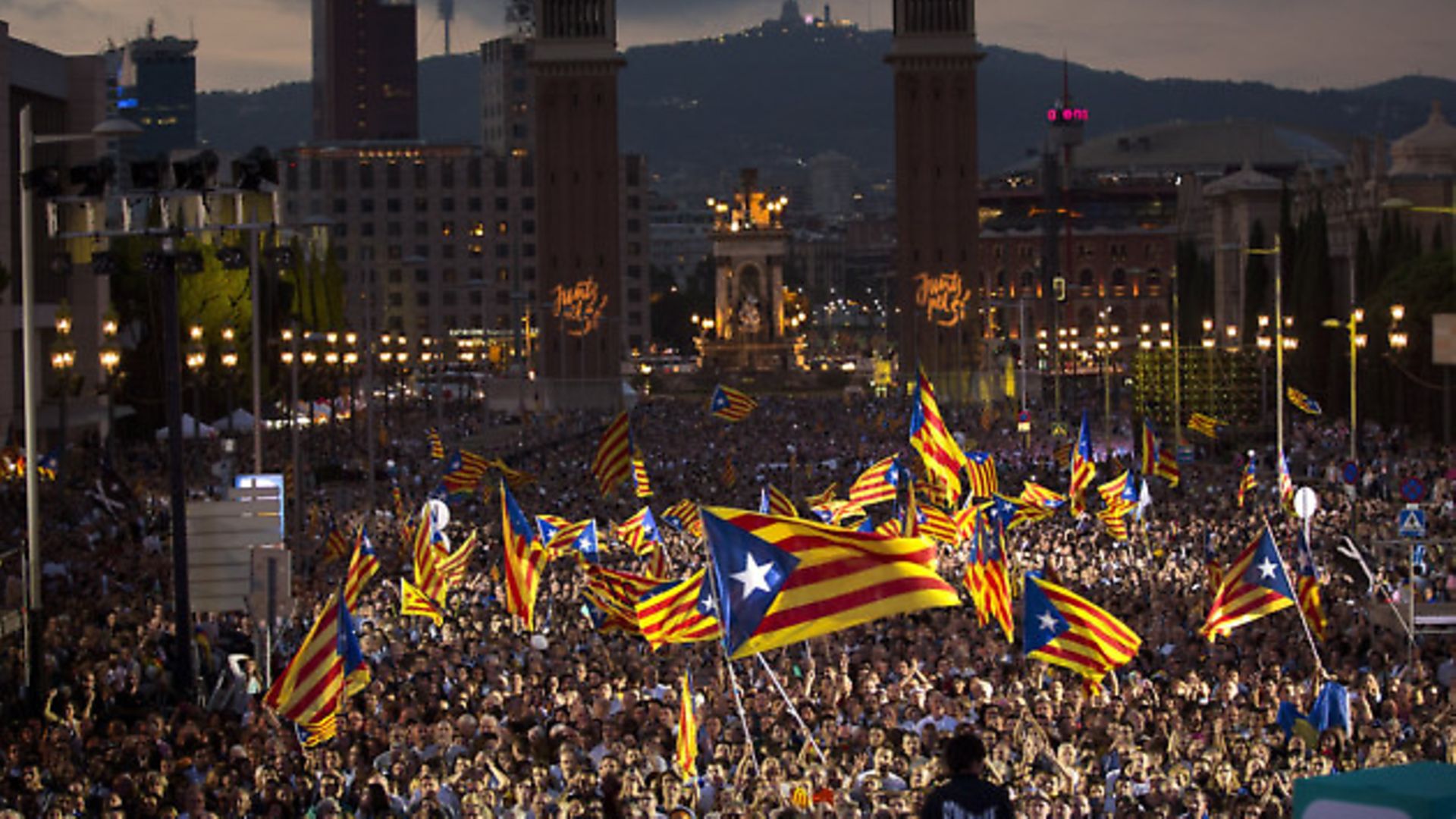
Britain is not the only country rife with division amid referendums and bitter arguements over nationalism. Hispanophile Tim Parfitt examines another turbulant period in Spanish/Catalan relations
It’s time for Madrid to stop treating Catalonia as the naughty kid in the Spanish classroom.
Europeanism has always been a key characteristic of the Catalan independence movement. In fact Catalonia, located in Spain’s north-east Mediterranean region, separated by the Pyrenees from southern France where it has solid historical ties, looks towards Europe. It has always looked towards Europe rather than Spain. Its capital, Barcelona, is one of the coolest hubs of European culture. And the region wants to be European – not Spanish.
But that doesn’t mean there are not similarities between Brexit and the Catalan separatist movement.
In a sense, the parallels between Brexit and the Catalan independence movement are many: the sentiments of identity, sovereignty, or that a far-off bureaucratic government is spending your money unwisely.
But whilst the Brexit referendum could be seen coming from a result of a Tory electoral promise to lure votes away from UKIP, initially a political strategy rather than from popular pressure, Catalonia, just like Scotland and Northern Ireland, does not want to give up its EU membership – far from it. Indeed, Catalonia is actively looking to Europe and appealing to European leaders and institutions to help mediate a way out of the current impasse.
I worked in Madrid for nine years and love the city and its people – but its rulers’ unwillingness to budge even an inch toward a Catalan compromise could result in disaster.
Catalan president, pro-European Carles Puigdemont, has vowed to press ahead with a ‘roadmap’ to independence for the region. He has also recently announced that he wants a referendum in September 2017, despite the courts ruling it illegal and him being threatened with prosecution.
The speaker of the region’s parliament, Carme Forcadell, is already being investigated for overseeing the approval of the independence blueprint itself. Puigdemont, meanwhile, has reached out to Madrid, saying it would be best to agree on a ‘negotiated referendum’, but he has also added that ‘this proposal does not expire, but it does not paralyse us, either’.
While Puigdemont has admitted that holding a new vote will be difficult, and that the best way to do so would be to strike a deal with the central government, he has also stated that politics should be ‘carried out in parliament rather than in court.’ In Madrid, however, that last remark has fallen on deaf ears.
In Spain right now there exists a kind of a political paralysis – thanks also to the ‘politicisation of justice’. To put it simply politics has all but vanished from Spanish politics. Instead, Madrid and Barcelona are locked in a legal battle – one Big Fat Spanish Court Case.
Regularly the judges and courts, egged on by Madrid, have been busy on the counter-attack against Catalonia and Catalan policies. The court cases are only serving to fuel the problem.
Catalonia is being treated like the disruptive child at the back of the classroom, and it is starting to look like bullying. Around 7.5m Catalans make up a sixth of the Spanish population and are responsible for a fifth of Spain’s economic output, but this ‘disruptive child’ is not getting the attention or respect it deserves.
It is not being heard, and the only parents it can turn to now are the international community and the EU. And if they won’t or can’t help to mediate in this situation, then matters could escalate further.
The painful economic crisis in Spain has only served to magnify calls for Catalan independence, as many Catalans believe their affluent region subsidises the poorer regions, and they also blame much of Spain’s debt crisis on the central government. There is also a great deal of anger and opposition towards Spain’s concentric (to Madrid) rail passenger and cargo networks, which run against any criteria of cost benefit analysis.
In short, Catalans have come to distrust Madrid politicians who they feel want to curtail their linguistic and cultural rights while blatantly milking the richest economy of the peninsula. Meanwhile, the courts have been happily overturning rulings on gender equality in the Catalan workplace, dropping them from Catalonia’s Equality Law because the articles ‘infringe upon the powers of the State’. The courts have also been enforcing the closure of Catalan facilities during Spain’s National Day, October 12, a holiday when Madrid hosts its traditional military march, presided over by the Spanish King, with soldiers and army vehicles parading through the capital’s streets.
And then there is bullfighting. Putting the animal rights debate to one side, many Catalans perceive bullfighting as an imposed tradition. It is viewed as an image of Spain and Spanish nationalism which was exploited by Franco abroad and within Spain. Catalonia finally banned it in 2010.
But in October the courts in Madrid overturned that ruling as well claiming it was ‘unconstitutional’. Imagine how Nicola Sturgeon would react if London were to act in a similar manner?
But it’s not about bullfighting, of course. It’s about what Catalonia can and can’t do.
Puigdemont is intent on holding a new referendum vote – but one to which international observers will grant legitimacy. To do that, the Catalan government must make sure that detractors of independence will also go to the polls. This is one of the basic conditions set out by the Council of Europe’s Venice Commission.
With a pro-independence parliamentary majority, Catalonia’s push for independence has become one of the largest civil rights movements in Europe. Surely it will be difficult for a democratic Europe to prevent the Catalans a vote on independence simply in the name of frontiers created by the marriage of Catholic kings or a victory in the war of Spanish succession? Or simply in the name of a constitution that only recognises ‘one Nation’ and proclaims its indivisibility?
With the EU itself so far keen to remain above the fray, Puigdemont has also advised against pre-empting how European countries will react ‘once Catalonia has taken a democratic decision’. He has said that the EU’s differing positions on Brexit and on Catalan independence were ‘paradoxical’. The EU had been ‘tying itself in knots’ to keep Britain in the EU, but on the other hand ‘might’ want to expel a dynamic economy that represents 2% of European GDP, an economically powerful region at the heart of Europe’s culture and traditions, and home to the major business hub of Barcelona. Surely Brussels will be desperate to hold on to all that? I believe he may well be right.









